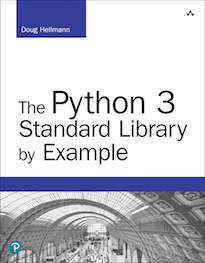Text¶
The str class is the most obvious text processing tool
available to Python programmers, but there are plenty of other tools
in the standard library to make advanced text manipulation simple.
Programs may use string.Template as a simple way to
parameterize strings beyond the features of str objects.
While not as feature-rich as templates defined by many of the web
frameworks or extension modules available from the Python Package
Index, string.Template is a good middle ground for
user-modifiable templates in which dynamic values need to be inserted
into otherwise static text.
The textwrap module includes tools for formatting text from
paragraphs by limiting the width of output, adding indentation, and
inserting line breaks to wrap lines consistently.
The standard library includes two modules for comparing text
values that go beyond the built-in equality and sort comparison supported by
string objects. re provides a complete regular expression
library, implemented in C for speed. Regular expressions are
well suited for finding substrings within a larger data set, comparing
strings against a pattern more complex than another fixed string, and
mild parsing.
difflib, in contrast, computes the actual differences
between sequences of text in terms of the parts added, removed, or
changed. The output of the comparison functions in difflib can
be used to provide more detailed feedback to the user about where changes
occur in two inputs, how a document has changed over time, and so on.
 PyMOTW-3
PyMOTW-3